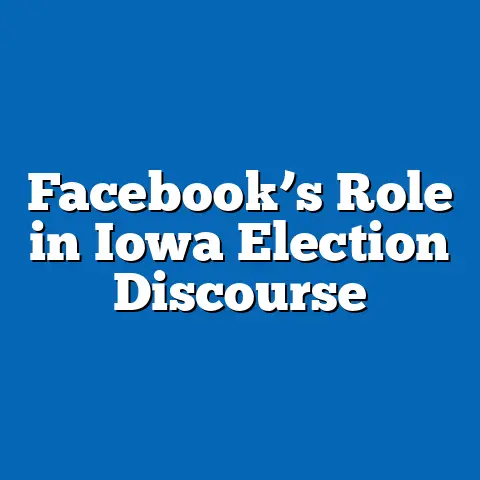Secure Facebook: Optimize Email Protection (Pro Tips)
Facebook, for many of us, is more than just a social network; it’s a digital extension of our lives.
We use it to connect with family, friends, build communities, and even run businesses.
But with this level of integration comes a significant responsibility: protecting our accounts from the ever-present threat of cyberattacks.
One of the most overlooked, yet crucial, aspects of Facebook security is the protection of the email address linked to your account.
It’s the key to unlocking your digital identity, and if compromised, it can open the floodgates to a whole host of problems.
Think of your email inbox as a bustling city street.
Amidst the important letters and packages (critical security updates), there’s a constant barrage of noise – promotional flyers, spam, and endless notifications.
This “noise” can drown out the important signals, making it incredibly easy to miss critical security alerts from Facebook.
That’s why noise reduction is paramount.
In this article, I’m going to share practical, actionable tips to optimize your email protection and, in turn, significantly enhance the security of your Facebook account.
We’ll delve into the risks, understand the importance of noise reduction, and equip you with the pro tips you need to stay safe in the digital world.
My aim is to empower you with the knowledge and tools necessary to maintain a secure Facebook presence, starting with a robust email defense.
Understanding the Risks
The email address linked to your Facebook account is far more valuable to hackers than you might think.
It’s not just a way to send you birthday greetings or promotional offers.
It’s the primary recovery point for your account, the gateway to resetting your password, and the key to controlling your digital identity on the platform.
Here are some of the most common risks associated with a compromised email account linked to Facebook:
Phishing Attacks: These deceptive emails often mimic legitimate Facebook communications, tricking you into revealing your login credentials or other sensitive information.
I’ve seen countless examples of users clicking on links in these emails, only to be redirected to fake login pages designed to steal their usernames and passwords.Account Takeovers: Once a hacker gains access to your email, they can easily reset your Facebook password and take complete control of your account.
This can lead to identity theft, financial fraud, and the spread of malware to your friends and followers.Spam and Malware: A compromised email account can be used to send spam and malware to your contacts, damaging your reputation and potentially infecting their devices.
I once worked with a client whose email account was hacked and used to send out a massive spam campaign, resulting in significant damage to their brand image.-
Data Breaches: If your email provider experiences a data breach, your email address and password could be exposed, making you vulnerable to attacks on your Facebook account and other online services.
Phishing Attacks: These deceptive emails often mimic legitimate Facebook communications, tricking you into revealing your login credentials or other sensitive information.
I’ve seen countless examples of users clicking on links in these emails, only to be redirected to fake login pages designed to steal their usernames and passwords.
Account Takeovers: Once a hacker gains access to your email, they can easily reset your Facebook password and take complete control of your account.
This can lead to identity theft, financial fraud, and the spread of malware to your friends and followers.
Spam and Malware: A compromised email account can be used to send spam and malware to your contacts, damaging your reputation and potentially infecting their devices.
I once worked with a client whose email account was hacked and used to send out a massive spam campaign, resulting in significant damage to their brand image.
Data Breaches: If your email provider experiences a data breach, your email address and password could be exposed, making you vulnerable to attacks on your Facebook account and other online services.
The statistics paint a grim picture.
According to recent reports, phishing attacks targeting social media users have increased dramatically in the past year, with Facebook being a prime target.
A study by Verizon found that 94% of data breaches start with phishing emails.
These numbers highlight the urgent need for robust email protection.
The bottom line is this: a compromised email account is a direct threat to your Facebook security.
By understanding the risks, you can take proactive steps to protect yourself.
The Importance of Noise Reduction
In the context of email security, “noise” refers to the overwhelming volume of irrelevant or unwanted emails that clutter your inbox.
This includes social media notifications, promotional offers, newsletters you no longer read, and, of course, spam.
While these emails may seem harmless on the surface, they can have a significant impact on your ability to recognize and respond to genuine security alerts from Facebook.
Imagine receiving dozens of emails every day from Facebook, notifying you about new friend requests, comments on your posts, and updates from groups you’ve joined.
Amidst this constant stream of notifications, it’s easy to miss the one email that truly matters: a security alert warning you of an unusual login attempt or a password change request.
I’ve personally experienced this firsthand.
A few years ago, I almost missed a critical security alert from my bank because it was buried in a pile of promotional emails.
It was a wake-up call that highlighted the importance of actively managing my inbox and filtering out the noise.
Here’s why noise reduction is so important for Facebook security:
-
Improved Visibility: By reducing the volume of irrelevant emails, you increase the visibility of important security alerts from Facebook.
-
Faster Response Times: When you’re not constantly sifting through a cluttered inbox, you can respond more quickly to potential threats, minimizing the damage they can cause.
-
Reduced Stress: A clean and organized inbox can reduce stress and improve your overall mental well-being, making it easier to focus on important tasks, including security.
-
Enhanced Awareness: By actively managing your inbox, you become more aware of the types of emails you receive and more likely to spot suspicious activity.
Improved Visibility: By reducing the volume of irrelevant emails, you increase the visibility of important security alerts from Facebook.
Faster Response Times: When you’re not constantly sifting through a cluttered inbox, you can respond more quickly to potential threats, minimizing the damage they can cause.
Reduced Stress: A clean and organized inbox can reduce stress and improve your overall mental well-being, making it easier to focus on important tasks, including security.
Enhanced Awareness: By actively managing your inbox, you become more aware of the types of emails you receive and more likely to spot suspicious activity.
I know a small business owner who lost access to their Facebook business page because they ignored a password reset request that was buried in a mountain of promotional emails.
By the time they realized what had happened, the hackers had already taken control of the page and were using it to spread misinformation.
This unfortunate incident underscores the critical importance of noise reduction.
In the next section, I’ll share some pro tips for optimizing your email protection and reducing the noise in your inbox, so you can stay safe and secure on Facebook.
Pro Tips for Optimizing Email Protection
Now, let’s dive into the practical steps you can take to optimize your email protection and enhance your Facebook security.
These tips are designed to be easy to implement and will make a significant difference in your overall security posture.
Tip 1: Use a Dedicated Email for Facebook
One of the simplest and most effective ways to reduce noise and enhance security is to use a separate email address specifically for Facebook and other social media accounts.
This practice isolates your social media communications from your personal and professional emails, making it easier to identify and respond to security alerts.
I’ve been using a dedicated email address for my social media accounts for years, and it’s made a huge difference in my ability to manage my inbox and stay on top of security alerts.
Here’s why using a dedicated email address is a good idea:
-
Reduced Clutter: It keeps your primary email inbox clean and free from social media notifications and promotional emails.
-
Enhanced Security: It isolates your social media communications from your personal and professional emails, reducing the risk of phishing attacks and account takeovers.
-
Improved Organization: It makes it easier to filter and categorize emails from Facebook, allowing you to quickly identify important security alerts.
Reduced Clutter: It keeps your primary email inbox clean and free from social media notifications and promotional emails.
Enhanced Security: It isolates your social media communications from your personal and professional emails, reducing the risk of phishing attacks and account takeovers.
Improved Organization: It makes it easier to filter and categorize emails from Facebook, allowing you to quickly identify important security alerts.
Creating a new email address is free and easy.
You can use services like Gmail, Outlook, or Yahoo Mail to set up a dedicated account specifically for your Facebook and other social media profiles.
Once you’ve created the new email address, update your Facebook account settings to reflect the change.
Tip 2: Implement Email Filters and Folders
Email filters and folders are powerful tools for organizing your inbox and reducing noise.
By setting up filters to automatically categorize emails from Facebook, you can streamline your inbox and make it easier to find important security alerts.
Here’s how to implement email filters and folders:
-
Identify Key Phrases: Identify the key phrases that appear in emails from Facebook, such as “Facebook Security,” “Password Reset,” “Unusual Login,” and “Two-Factor Authentication.”
Create Filters: Create filters in your email client to automatically categorize emails containing these phrases.
For example, you can create a filter that moves all emails containing “Facebook Security” to a dedicated “Facebook Security” folder.-
Set Up Folders: Create specific folders for different types of emails from Facebook, such as “Notifications,” “Promotional Content,” and “Security Alerts.”
Test Your Filters: Test your filters to ensure they are working correctly.
Send yourself test emails from Facebook to confirm that they are being categorized correctly.
Identify Key Phrases: Identify the key phrases that appear in emails from Facebook, such as “Facebook Security,” “Password Reset,” “Unusual Login,” and “Two-Factor Authentication.”
Create Filters: Create filters in your email client to automatically categorize emails containing these phrases.
For example, you can create a filter that moves all emails containing “Facebook Security” to a dedicated “Facebook Security” folder.
Set Up Folders: Create specific folders for different types of emails from Facebook, such as “Notifications,” “Promotional Content,” and “Security Alerts.”
Test Your Filters: Test your filters to ensure they are working correctly.
Send yourself test emails from Facebook to confirm that they are being categorized correctly.
I recommend checking your “Facebook Security” folder regularly to ensure you haven’t missed any important alerts.
You can also set up notifications to alert you when a new email arrives in this folder.
Tip 3: Enable Two-Factor Authentication
Two-factor authentication (2FA) is an essential security measure that adds an extra layer of protection to your email account and Facebook account.
When you enable 2FA, you’ll need to provide a second form of authentication, such as a code sent to your phone, in addition to your password, when you log in.
I always advise my clients to enable 2FA on all their important accounts, including their email and Facebook accounts.
It’s one of the most effective ways to prevent unauthorized access.
Here’s how to enable two-factor authentication for your email account:
-
Access Security Settings: Go to the security settings of your email provider (e.g., Gmail, Outlook, Yahoo Mail).
-
Enable 2FA: Look for the option to enable two-factor authentication or two-step verification.
-
Choose Authentication Method: Choose your preferred authentication method, such as SMS codes, authenticator apps, or security keys.
-
Follow Instructions: Follow the instructions provided by your email provider to set up 2FA.
Access Security Settings: Go to the security settings of your email provider (e.g., Gmail, Outlook, Yahoo Mail).
Enable 2FA: Look for the option to enable two-factor authentication or two-step verification.
Choose Authentication Method: Choose your preferred authentication method, such as SMS codes, authenticator apps, or security keys.
Follow Instructions: Follow the instructions provided by your email provider to set up 2FA.
Once you’ve enabled 2FA for your email account, enable it for your Facebook account as well.
This will provide an extra layer of protection against account takeovers.
Tip 4: Regularly Review Email Security Settings
It’s important to periodically review and update your email security settings to ensure they are up to date and configured correctly.
This includes checking connected apps and services, revoking access to suspicious applications, and updating your password.
I recommend reviewing your email security settings at least once a month.
It’s a quick and easy way to stay on top of potential threats.
Here are some things to check when reviewing your email security settings:
Connected Apps and Services: Review the list of apps and services that have access to your email account.
Revoke access to any applications you no longer use or don’t recognize.Password Strength: Ensure you are using a strong, unique password for your email account.
If you’re not sure, change your password to something more secure.Recovery Options: Verify that your recovery email address and phone number are up to date.
This will make it easier to recover your account if you ever lose access.-
Security Alerts: Check your security alert settings to ensure you are receiving notifications about suspicious activity, such as unusual login attempts.
Connected Apps and Services: Review the list of apps and services that have access to your email account.
Revoke access to any applications you no longer use or don’t recognize.
Password Strength: Ensure you are using a strong, unique password for your email account.
If you’re not sure, change your password to something more secure.
Recovery Options: Verify that your recovery email address and phone number are up to date.
This will make it easier to recover your account if you ever lose access.
Security Alerts: Check your security alert settings to ensure you are receiving notifications about suspicious activity, such as unusual login attempts.
Tip 5: Use Strong Passwords and Password Managers
Using strong, unique passwords for your email account and Facebook account is essential for protecting your online security.
A strong password should be at least 12 characters long and include a combination of uppercase and lowercase letters, numbers, and symbols.
I know it can be difficult to remember multiple strong passwords, which is why I recommend using a password manager.
Password managers are tools that generate and store secure passwords for all your online accounts.
They can also automatically fill in your login credentials when you visit a website or app.
Here are some popular password managers:
- LastPass
- 1Password
- Dashlane
- Bitwarden
Password managers can significantly improve your online security by making it easier to use strong, unique passwords for all your accounts.
Best Practices for Managing Notifications
Customizing your notification settings on Facebook is another effective way to reduce noise and improve your overall account security.
By limiting the number of notifications you receive, you can focus on the alerts that truly matter, such as security-related notifications.
Here’s how to adjust your notification preferences within Facebook settings:
-
Access Notification Settings: Go to the notification settings on Facebook.
-
Customize Notification Types: Review the different types of notifications you receive, such as friend requests, comments, likes, and group updates.
-
Disable Unnecessary Notifications: Disable the notifications you don’t need or find distracting.
-
Prioritize Security Alerts: Ensure you are receiving notifications about important security events, such as unusual login attempts, password change requests, and two-factor authentication alerts.
Access Notification Settings: Go to the notification settings on Facebook.
Customize Notification Types: Review the different types of notifications you receive, such as friend requests, comments, likes, and group updates.
Disable Unnecessary Notifications: Disable the notifications you don’t need or find distracting.
Prioritize Security Alerts: Ensure you are receiving notifications about important security events, such as unusual login attempts, password change requests, and two-factor authentication alerts.
I recommend setting up email notifications for security-related events so you can quickly respond to potential threats.
You can also customize your notification settings to receive push notifications on your phone for these events.
By limiting notifications, you can better focus on critical alerts, improving overall account security.
Conclusion
In this article, I’ve outlined the importance of optimizing email protection for securing your Facebook account.
I’ve emphasized the connection between noise reduction and effective email protection, providing practical tips for managing your inbox and staying on top of security alerts.
Here’s a recap of the key points:
-
Understanding the Risks: Be aware of the various threats associated with compromised email accounts, such as phishing attacks, account takeovers, and spam.
-
The Importance of Noise Reduction: Recognize how excessive notifications and irrelevant emails can hinder your ability to identify and respond to security alerts.
-
Pro Tips for Optimizing Email Protection:
- Use a dedicated email for Facebook.
- Implement email filters and folders.
- Enable two-factor authentication.
- Regularly review email security settings.
- Use strong passwords and password managers.
-
Best Practices for Managing Notifications: Customize your notification settings on Facebook to reduce unnecessary emails and prioritize security alerts.
Understanding the Risks: Be aware of the various threats associated with compromised email accounts, such as phishing attacks, account takeovers, and spam.
The Importance of Noise Reduction: Recognize how excessive notifications and irrelevant emails can hinder your ability to identify and respond to security alerts.
Pro Tips for Optimizing Email Protection:
- Use a dedicated email for Facebook.
- Implement email filters and folders.
- Enable two-factor authentication.
- Regularly review email security settings.
- Use strong passwords and password managers.
Best Practices for Managing Notifications: Customize your notification settings on Facebook to reduce unnecessary emails and prioritize security alerts.
By implementing these pro tips, you can significantly enhance the security of your Facebook account and reduce the risk of falling victim to cyber threats.
I encourage you to take action today to protect your digital identity and stay safe in the online world.
Remember, a proactive approach to security is always better than a reactive one.





